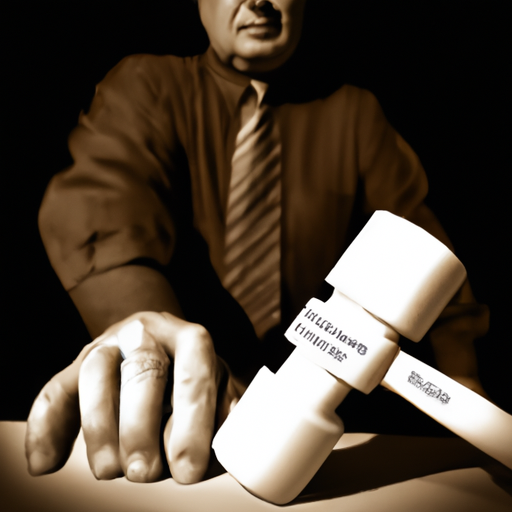In the ever-evolving field of criminal defense law, having a reliable and experienced attorney by your side can make all the difference. When it comes to the complex landscape of legal proceedings in Murray, Utah, it is crucial to find a lawyer who can navigate through the intricate details of each case with expertise and precision. This is where our criminal defense attorney excels, providing unparalleled support to individuals facing criminal charges and offering a comprehensive range of services to protect their rights. With a deep understanding of the challenges faced by those entangled in the criminal justice system, our attorney is committed to providing personalized and strategic counsel that ensures the best possible outcome for every client. Whether you are facing charges related to assault, theft, drug offenses, or any other criminal matter in Murray, Utah, our attorney is here to guide you through every step of the legal process, advocating on your behalf and fighting tirelessly to protect your freedom and future. Contact us now for a consultation, and let our expertise serve as your strongest defense.

Overview of Criminal Defense Law
Criminal defense law involves the legal representation of individuals who have been accused of committing a crime. This branch of law is essential for ensuring that defendants receive fair treatment and have their rights protected throughout the legal process. Criminal defense attorneys play a crucial role in advocating for their clients’ rights and building strong defense strategies to secure the best possible outcome.
Types of Criminal Charges
Criminal charges can be classified into three main categories: felonies, misdemeanors, and infractions.
Felonies
Felonies are the most serious types of crimes and carry significant penalties, including lengthy prison sentences and substantial fines. Examples of felonies include murder, rape, arson, and robbery.
Misdemeanors
Misdemeanors are less serious offenses compared to felonies but are still punishable under the law. The penalties for misdemeanors are generally less severe and may include fines and shorter jail sentences. Common examples of misdemeanors include petty theft, simple assault, and driving under the influence (DUI).
Infractions
Infractions are minor offenses that are typically punishable by fines rather than jail time. These offenses often include traffic violations, such as speeding or running a red light. While infractions may not carry severe consequences, it is still crucial to seek legal advice to handle these matters.
Penalties for Criminal Offenses
When someone is convicted of a criminal offense, various penalties can be imposed depending on the severity of the crime and the defendant’s criminal history. Some common penalties for criminal offenses include:
Jail Time
For more serious offenses, such as felonies, individuals may face imprisonment. Jail sentences can range from a few months to several years, or even life in prison for the most severe crimes. The duration of the sentence depends on the specific offense and other factors considered during sentencing.
Fines
Fines are financial penalties imposed as punishment for criminal convictions. The amount of the fine typically depends on the severity of the offense and can range from a few hundred dollars to thousands of dollars. In some cases, fines may be imposed in addition to other penalties, such as jail time or probation.
Probation
Probation is a period of supervision ordered by the court instead of imprisonment. During probation, individuals are required to adhere to specific conditions, such as maintaining regular contact with a probation officer, attending counseling or rehabilitation programs, and avoiding any further criminal activity. Violating the terms of probation can result in more severe consequences.
Restitution
In certain cases, a court may order a convicted individual to pay restitution to the victim as compensation for any financial losses or damages they suffered as a result of the crime. This can include medical expenses, property damage, or loss of income. Restitution is separate from fines and is intended to provide some measure of financial recovery for the victim.
The Criminal Defense Process
The criminal defense process consists of several stages, each with its own specific procedures and requirements. It is important to have a solid understanding of each stage to navigate the legal system effectively. The key stages of the criminal defense process include:
Investigation
During the investigation stage, law enforcement authorities collect evidence and gather information about the alleged crime. This may involve interviewing witnesses, examining physical evidence, and conducting forensic tests. It is essential to have a competent criminal defense attorney involved from the earliest stages of the investigation to ensure the protection of your rights and to gather evidence in your favor.
Arrest
If law enforcement officials have gathered enough evidence to establish probable cause, they may make an arrest. During an arrest, the individual is taken into custody and informed of the charges against them. It is crucial to exercise your right to remain silent and seek legal representation as soon as possible during this stage to avoid saying anything that could harm your defense.
Preliminary Hearings
Preliminary hearings, also referred to as probable cause hearings, are held to determine if there is enough evidence to proceed with a trial. At this stage, the prosecution presents evidence, and the defense may cross-examine witnesses and challenge the sufficiency of the evidence. If the court determines that there is enough evidence, the case will proceed to trial.
Trial
The trial is the main event in the criminal defense process where the defense presents its case to a judge or jury. The prosecution bears the burden of proving the defendant’s guilt beyond a reasonable doubt. The defense’s role is to challenge the prosecution’s evidence, present counterarguments, and raise reasonable doubt regarding the defendant’s guilt.
Sentencing
If the defendant is found guilty or pleads guilty through a plea bargain, the court will proceed with sentencing. The judge considers a variety of factors, such as the nature of the crime, the defendant’s criminal history, and any mitigating or aggravating circumstances. The court then determines the appropriate penalties, which may include jail time, fines, probation, or restitution.

The Role of a Criminal Defense Attorney
A skilled criminal defense attorney plays a vital role in protecting the rights of the accused and advocating for the best possible outcome. Some key responsibilities of a criminal defense attorney include:
Legal Advice and Guidance
A criminal defense attorney provides sound legal advice and guidance throughout the entire criminal defense process. They will explain the charges and potential consequences, help analyze the strengths and weaknesses of the case, and outline the available defense strategies. Having a knowledgeable attorney by your side ensures that you make informed decisions at every stage of your defense.
Negotiating Plea Deals
In some cases, it may be in the defendant’s best interest to negotiate a plea deal with the prosecution. A skilled criminal defense attorney can assess the evidence and circumstances of the case and negotiate a favorable plea agreement, which may result in reduced charges or penalties. This can potentially save the defendant from the uncertainty and risk of a trial.
Building a Strong Defense Strategy
One of the most critical roles of a criminal defense attorney is crafting a strong defense strategy tailored to the specific case. They conduct a thorough investigation, analyze evidence, interview witnesses, and consult with experts if necessary. This diligent preparation helps identify weaknesses in the prosecution’s case and develop effective arguments in the defendant’s favor.
Representing Clients in Court
During a trial, a criminal defense attorney represents their clients in court. They present arguments, cross-examine witnesses, object to improper evidence, and make persuasive arguments to the judge or jury. A skilled attorney’s courtroom experience and expertise significantly impact the outcome of the case.
How to Choose a Criminal Defense Attorney
Selecting the right criminal defense attorney to represent you is crucial to the success of your case. Consider the following factors when making your choice:
Experience and Expertise
Look for an attorney who has extensive experience in criminal defense law and specializes in handling cases similar to yours. An attorney with many years of experience understands the complexities of the legal system and has the skills necessary to build a strong defense strategy.
Reputation and Client Reviews
Research the attorney’s reputation and read client reviews to get an idea of their track record and level of client satisfaction. Positive reviews and a strong reputation in the legal community are indicators of an attorney’s competence and dedication to achieving favorable outcomes for clients.
Compatibility and Trust
Your attorney should be someone you feel comfortable working with and can trust with your case. Schedule an initial consultation to assess the attorney’s communication style, approachability, and willingness to address your concerns. Building a solid attorney-client relationship based on trust and open communication is essential for a successful defense.
Communication and Availability
Effective communication is vital throughout the defense process. Ensure that the attorney you choose is responsive, promptly returns your calls or emails, and keeps you informed about your case’s progress. An attorney who is readily available to answer your questions and provide guidance can provide peace of mind during a stressful time.
Common Criminal Defense Strategies
A skilled criminal defense attorney employs various defense strategies to challenge the prosecution’s case and secure a favorable outcome for their clients. Some common strategies include:
Alibi Defense
An alibi defense involves presenting evidence that proves the defendant was elsewhere at the time the crime was committed. This defense strategy aims to establish reasonable doubt about the defendant’s presence at the scene of the crime.
Insanity Defense
The insanity defense asserts that the defendant is not fully responsible for their actions because they were legally insane at the time of the offense. To use this defense, the defendant must prove that they had a mental illness or defect that prevented them from understanding the nature or wrongfulness of their actions.
Self-Defense
Self-defense is a defense strategy used when the defendant claims that they acted to protect themselves or others from harm. A successful self-defense claim typically requires evidence showing that the defendant reasonably believed they were facing imminent danger and used a proportional level of force to defend themselves.
Entrapment
Entrapment occurs when law enforcement officers induce or persuade an individual to commit a crime they would not have otherwise committed. The defense argues that the defendant’s actions were a direct result of law enforcement’s undue influence.
Lack of Evidence
A defense attorney may challenge the prosecution’s case by asserting a lack of evidence to prove the defendant’s guilt beyond a reasonable doubt. This defense strategy may involve questioning the credibility of witnesses, challenging the admissibility of evidence, or highlighting inconsistencies or flaws in the forensic analysis.
Protecting Your Rights Throughout the Legal Process
Defendants in criminal cases have several fundamental rights that must be protected throughout the legal process. Understanding these rights is crucial for ensuring a fair trial and a just outcome. Some of the most important rights include:
Right to Remain Silent
You have the right to remain silent and not incriminate yourself during police interrogations or any stage of the legal process. It is essential to exercise this right and avoid making any statements that could be used against you.
Right to Legal Representation
Every individual accused of a crime has the right to legal representation. If you cannot afford an attorney, one will be provided for you. Having a skilled criminal defense attorney by your side is crucial to protect your rights and navigate the legal system effectively.
Right to a Fair Trial
The Sixth Amendment guarantees your right to a fair trial. This includes the right to a speedy trial, the right to confront witnesses, the right to present evidence, and the right to be represented by an attorney. These rights are essential for ensuring a fair and just trial.

Frequently Asked Questions
What should I do if I am arrested?
If you are arrested, it is crucial to remain calm and cooperate with law enforcement officials. Exercise your right to remain silent and avoid providing any information without the presence of an attorney. Contact a criminal defense attorney as soon as possible to protect your rights and receive legal guidance.
How do I know if I need a criminal defense attorney?
If you have been accused of committing a crime, it is in your best interest to seek legal representation. A skilled criminal defense attorney can assess the strength of the prosecution’s case, explain your legal rights, develop an effective defense strategy, and navigate the complexities of the legal system on your behalf.
Do I have to answer questions from the police?
You have the right to remain silent and are under no obligation to answer questions from the police without an attorney present. It is advisable to exercise this right and avoid providing potentially incriminating information.
Can a criminal defense attorney guarantee a dismissal?
While an experienced criminal defense attorney can greatly influence the outcome of a case, it is impossible to guarantee a dismissal. The attorney’s role is to build a strong defense, challenge the prosecution’s evidence, and advocate for the best possible outcome. However, the final decision rests with the judge or jury.
How much does a criminal defense attorney cost?
The cost of hiring a criminal defense attorney varies depending on several factors, including the complexity of the case, the attorney’s experience and reputation, and the region where the case is being handled. It is best to consult with an attorney to discuss their fees and payment arrangements.
Conclusion
When facing criminal charges, it is essential to seek the assistance of a skilled criminal defense attorney who will protect your rights and secure the best possible outcome. The criminal defense process can be daunting, but with the guidance of an experienced attorney, you can navigate the complexities of the legal system with confidence. Remember to exercise your rights to remain silent and have legal representation present during interrogations or any stage of the legal process. By consulting a trusted criminal defense attorney, you can effectively challenge the prosecution’s case, build a strong defense, and minimize the potential consequences of criminal charges. Don’t hesitate to reach out for a consultation with a reputable criminal defense attorney to discuss your case and explore your legal options.
Frequently Asked Questions:
-
What should I do if I am arrested? If you are arrested, it is crucial to remain calm and cooperate with law enforcement officials. Exercise your right to remain silent and avoid providing any information without the presence of an attorney. Contact a criminal defense attorney as soon as possible to protect your rights and receive legal guidance.
-
How do I know if I need a criminal defense attorney? If you have been accused of committing a crime, it is in your best interest to seek legal representation. A skilled criminal defense attorney can assess the strength of the prosecution’s case, explain your legal rights, develop an effective defense strategy, and navigate the complexities of the legal system on your behalf.
-
Do I have to answer questions from the police? You have the right to remain silent and are under no obligation to answer questions from the police without an attorney present. It is advisable to exercise this right and avoid providing potentially incriminating information.
-
Can a criminal defense attorney guarantee a dismissal? While an experienced criminal defense attorney can greatly influence the outcome of a case, it is impossible to guarantee a dismissal. The attorney’s role is to build a strong defense, challenge the prosecution’s evidence, and advocate for the best possible outcome. However, the final decision rests with the judge or jury.
-
How much does a criminal defense attorney cost? The cost of hiring a criminal defense attorney varies depending on several factors, including the complexity of the case, the attorney’s experience and reputation, and the region where the case is being handled. It is best to consult with an attorney to discuss their fees and payment arrangements.



